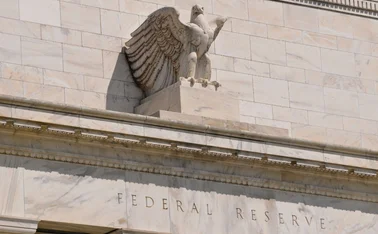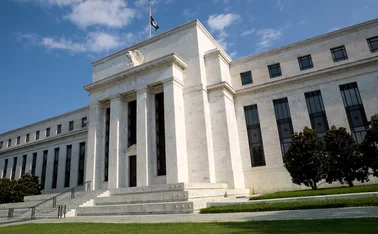
Riksbank's Persson: don't shoot CDS "messenger"

Credit default swaps (CDSs) have been widely blamed for exacerbating the eurozone debt crisis, and few people will have wept on May 18 when Germany's financial regulator tried to rein the market in.
One of those who may have felt a sting of sympathy is Mattias Persson, head of financial stability at the Sveriges Riksbank, Sweden's central bank.
"We shouldn't shoot the messenger," he told Risk in an interview at the start of this month. "In Europe, the net open position in CDSs is much smaller than the amount of sovereign debt outstanding." In other words, the CDS tail isn't wagging the bond market dog - it just gives you an idea of the animal's general health.
For that reason, Persson argues the CDS market can play a useful function for anyone interested in financial stability. The Riksbank, for one, keeps an eye on CDS spreads as an early warning indicator, he says: "Looking at this crisis, I think the CDS market was actually a bit slow to react to some things that turned out to be amiss - but there was some foresight in it and it's something we follow quite carefully, along with bond spreads and a series of other metrics."
Instead of blaming CDS spreads for the reluctance of bond markets to provide fresh financing to Europe's weaker countries, Persson argues the region has to pull together and tackle the underlying problems of over-spending and over-borrowing. The good news is that European countries have done it before, he says.
"Sweden as a society managed to survive its own crisis in the early 1990s because there was a political consensus and a consensus between unions, corporates and the man on the street that we really needed large cuts and savings. Greece is now in the same situation as Latvia two years ago - they need an internal devaluation and they need the commitment to fulfil that programme. It will be very painful, but it can be done," he says.
That doesn't mean it will be done, of course. Persson says it is too early to call an end to the crisis and accepts there are similarities between the situation European countries find themselves in and the one which banks were in following Lehman's collapse in September 2008. As such, he refuses to dismiss the possibility that markets could close to bigger European countries, such as Spain and Italy: "A couple of years ago I would probably have said 'no' to that question, but in this crisis we saw after Lehman what could happen when confidence vanishes from the market. I think the euro area has shown that there is a commitment to help Greece - but it is too early to know the outcome today," he says.
This article first appeared on Risk.net
Only users who have a paid subscription or are part of a corporate subscription are able to print or copy content.
To access these options, along with all other subscription benefits, please contact info@centralbanking.com or view our subscription options here: http://subscriptions.centralbanking.com/subscribe
You are currently unable to print this content. Please contact info@centralbanking.com to find out more.
You are currently unable to copy this content. Please contact info@centralbanking.com to find out more.
Copyright Infopro Digital Limited. All rights reserved.
You may share this content using our article tools. Printing this content is for the sole use of the Authorised User (named subscriber), as outlined in our terms and conditions - https://www.infopro-insight.com/terms-conditions/insight-subscriptions/
If you would like to purchase additional rights please email info@centralbanking.com
Copyright Infopro Digital Limited. All rights reserved.
You may share this content using our article tools. Copying this content is for the sole use of the Authorised User (named subscriber), as outlined in our terms and conditions - https://www.infopro-insight.com/terms-conditions/insight-subscriptions/
If you would like to purchase additional rights please email info@centralbanking.com
Most read
- ECB says iPhone is currently incompatible with digital euro
- Supervisors grapple with the smaller bank dilemma
- ‘Do I die, or do I survive?’ Officials reflect on Basel III complexity








